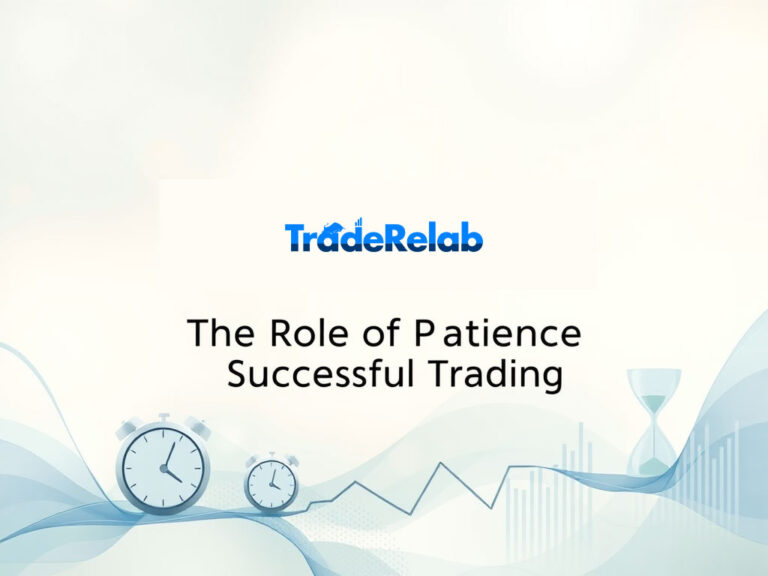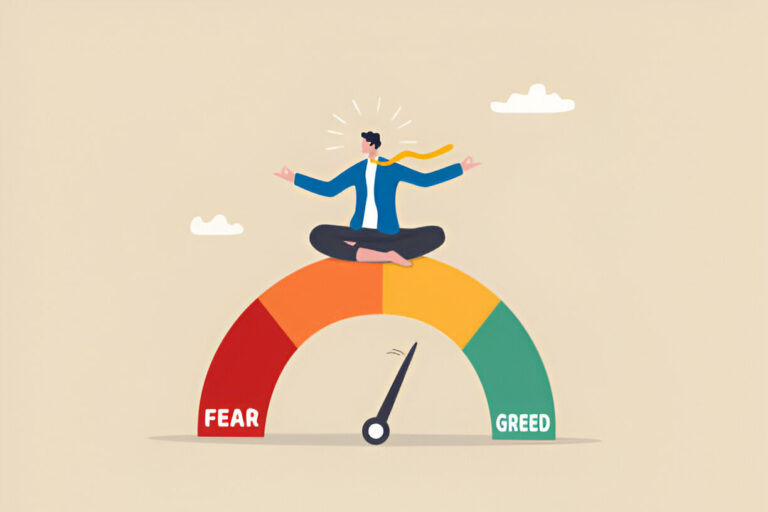How to Control Emotions in Trading

Trading in financial markets is as much about mastering emotions as it is about mastering the technical aspects of trading. Fear, greed, excitement, and frustration are all emotions that can interfere with rational decision-making, leading traders to make impulsive and sometimes costly mistakes. Controlling emotions in trading is crucial to maintaining a disciplined, methodical approach that ultimately leads to more consistent profits and fewer emotional pitfalls. In this article, we will explore strategies to help you control your emotions in trading and how to become a more disciplined and successful trader.

The Role of Emotions in Trading
Emotions can have a profound impact on trading decisions, often clouding judgment and leading to erratic behavior. The two most dominant emotions that traders experience are fear and greed, but other emotions like excitement, impatience, and frustration can also significantly influence trading outcomes.
1. Fear
Fear in trading often stems from the fear of losing money. This emotion can cause traders to second-guess their strategies, pull out of trades prematurely, or avoid taking risks altogether. Fear can paralyze traders, leading them to miss out on profitable opportunities or make decisions based on impulse rather than logic.
2. Greed
Greed, on the other hand, is the desire for more profits. Traders who are driven by greed may take on excessive risk, overleveraging their positions in the hopes of larger returns. Greed can lead to poor decision-making, such as chasing after quick profits or holding on to losing positions for too long, hoping that the market will turn in their favor.
3. Excitement
Excitement can also play a role in trading. While some traders may feel a rush of adrenaline when making a winning trade, others may become overly confident, thinking they have found a “sure thing.” This excitement can lead to overconfidence, where traders abandon their strategies or take excessive risks.
4. Frustration and Impatience
Frustration often arises when traders experience consecutive losses, or when a trade doesn’t go as planned. This emotion can lead traders to abandon their trading plan or to overtrade, trying to make up for their losses quickly. Impatience can also cloud judgment, causing traders to rush decisions and take impulsive actions.

Why Controlling Emotions is Crucial for Successful Trading
Emotions, when left unchecked, can be detrimental to a trader’s success. Trading is a game of probabilities, and emotional decisions often lead to a break in consistency. When fear or greed takes over, traders are likely to make decisions that deviate from their trading plan, resulting in increased losses or missed opportunities.
By controlling emotions, traders can maintain a calm, objective approach, even during periods of market volatility. The ability to think clearly and stick to a well-defined strategy is what separates successful traders from those who lose money over time.
Strategies to Control Emotions in Trading
While it may seem impossible to completely eliminate emotions while trading, it is possible to manage them effectively. Here are some strategies to help you control your emotions and make more rational decisions:
1. Develop a Trading Plan
A well-defined trading plan is the foundation for emotional control. Having a clear set of rules regarding when to enter and exit trades, how much risk to take, and what your profit targets are allows you to stay focused on your strategy rather than being swayed by emotions.
Your trading plan should include:
- Risk Management Rules: Define how much of your capital you are willing to risk on each trade. This helps to avoid emotional decisions driven by fear.
- Entry and Exit Points: Clearly define your entry and exit points so you can follow a methodical process rather than making impulsive decisions.
- Profit Targets and Stop-Losses: Establish your profit targets and stop-loss orders in advance, so you don’t have to make decisions under pressure.
By having a concrete plan, you give yourself something to rely on during moments of emotional turbulence.
2. Practice Proper Risk Management
Risk management is one of the most effective ways to protect yourself from emotional decision-making. When you risk too much on a single trade, you put yourself under unnecessary stress, and the fear of losing can lead to hasty decisions.
Some effective risk management strategies include:
- Position Sizing: Determine the size of your trades based on your overall risk tolerance and account size.
- Stop-Loss Orders: Use stop-loss orders to protect your capital and limit losses. This removes the need for emotional decision-making when the market moves against you.
- Diversification: Avoid putting all your money into one asset or trade. Diversifying your portfolio reduces the emotional impact of any single trade.
By sticking to these risk management principles, you take the emotional pressure off yourself, knowing that your exposure is controlled and well-thought-out.
3. Set Realistic Goals and Expectations
One of the main reasons emotions run high in trading is due to unrealistic expectations. Traders who expect to make large profits quickly often become disappointed when they don’t. This leads to frustration and impulsive actions in an attempt to “recover” losses.
Setting realistic goals helps you manage expectations and stay grounded in your trading. Some tips for setting realistic goals include:
- Focus on Consistency: Instead of aiming for large profits on every trade, focus on being consistent with small, manageable gains over time.
- Celebrate Small Wins: Take the time to acknowledge and celebrate small victories. This can help boost your confidence and maintain motivation.
- Accept Losses: Losses are part of trading. Accept that no trader can win every trade, and understand that losses are simply part of the learning process.
4. Stay Detached from the Outcome
One of the most effective ways to control emotions is to detach yourself from the outcome of individual trades. Treat each trade as part of a larger process rather than a personal victory or failure. When you detach from the results, you are less likely to make impulsive decisions based on fear or greed.
To detach from the outcome:
- Follow Your Trading Plan: Trust your strategy and avoid reacting emotionally to individual wins or losses.
- Don’t Overanalyze: Avoid obsessing over each trade and its outcome. Focus on the long-term process rather than immediate results.
- Keep a Trading Journal: Document your trades and review them regularly to identify patterns and areas for improvement. This helps you focus on learning rather than emotional responses.
5. Practice Mindfulness and Stress Management
Trading can be mentally and emotionally exhausting. Practicing mindfulness and stress management techniques can help you stay calm and focused during market fluctuations.
- Meditation: Incorporate regular meditation into your routine to clear your mind and reduce stress.
- Breathing Exercises: Deep breathing exercises can help you stay calm and reduce anxiety during volatile market conditions.
- Physical Exercise: Regular physical activity can improve focus and reduce the negative impact of stress.
By reducing overall stress levels, you are better able to manage emotions and stay focused on your trading plan.
6. Use Technology to Your Advantage
Technology can be a powerful tool for managing emotions in trading. Many trading platforms allow you to set automated trading rules, stop-losses, and alerts, reducing the need for emotional decision-making.
For example:
- Automated Trading: Setting up automated trading systems allows you to follow your strategy without reacting emotionally to market movements.
- Trade Alerts: Set price alerts to notify you when a particular asset hits a price level, so you don’t have to constantly watch the market.
Using technology can help take the emotion out of trading and keep you focused on your long-term goals.
Conclusion
Controlling emotions in trading is essential for long-term success. Fear and greed are powerful forces that can lead traders to make irrational decisions, but with a clear trading plan, proper risk management, and emotional discipline, you can minimize their impact. By staying calm, detached from the outcome, and focusing on consistency rather than instant gratification, you can cultivate a disciplined trading mindset and make more rational, objective decisions.
FAQ:
1. How can I avoid letting fear control my trading decisions?
By developing a solid trading plan, practicing proper risk management, and setting realistic goals, you can minimize the fear of losing and focus on the long-term process.
2. What are some ways to manage greed while trading?
Sticking to your trading plan, avoiding overleveraging, and focusing on consistent profits rather than large, risky trades can help manage greed.
3. How can I stay calm during volatile market conditions?
Practicing mindfulness, setting stop-loss orders, and detaching from the outcome of individual trades can help you stay calm during volatile market conditions.
4. Why is emotional control important for a trader?
Emotional control helps you stick to your strategy, make rational decisions, and avoid impulsive actions that can lead to losses.
5. What role does risk management play in controlling emotions?
Risk management reduces the emotional stress of trading by ensuring that you are not overexposing yourself to significant losses, which helps maintain a disciplined approach.






